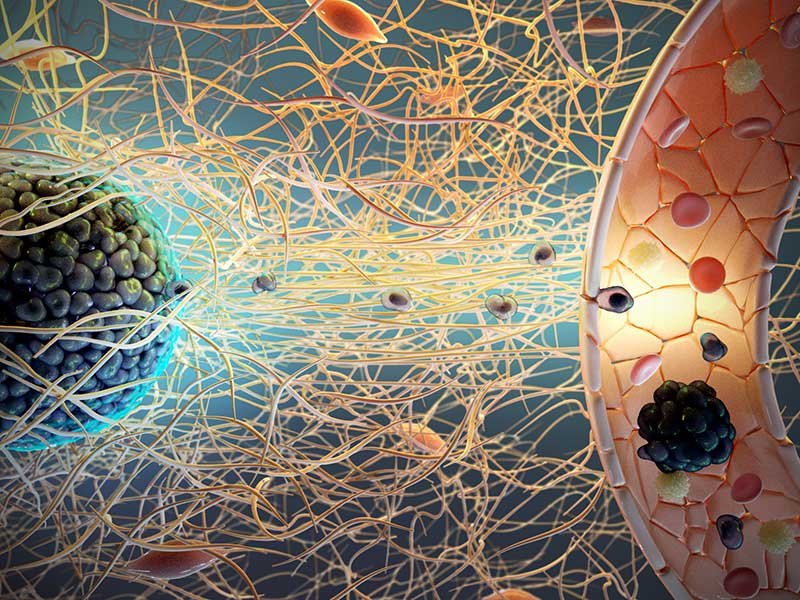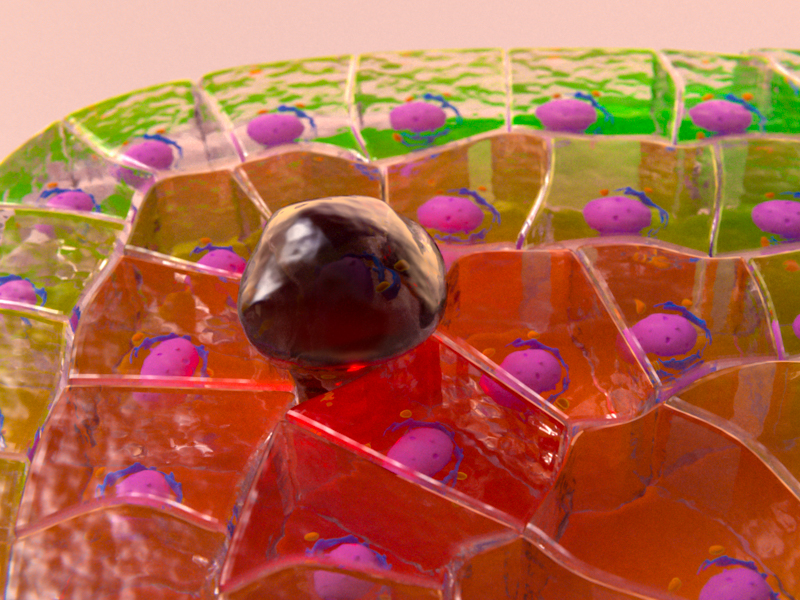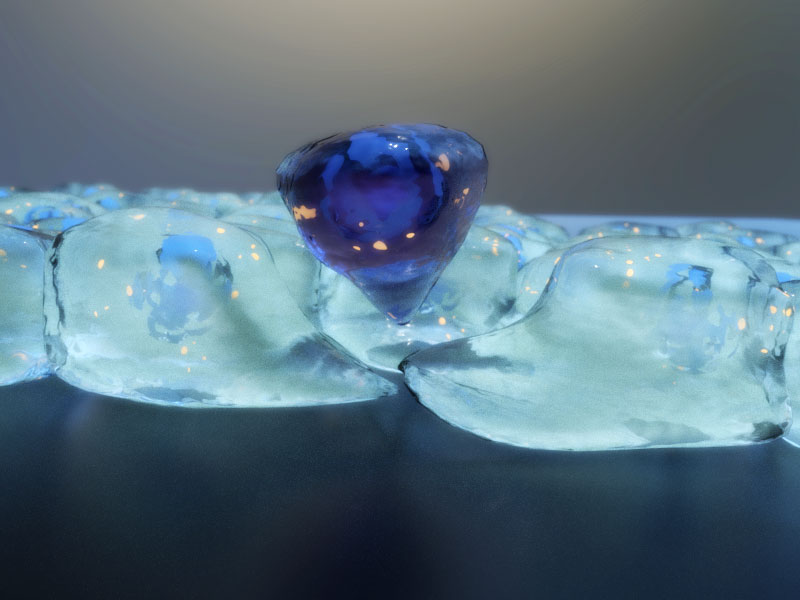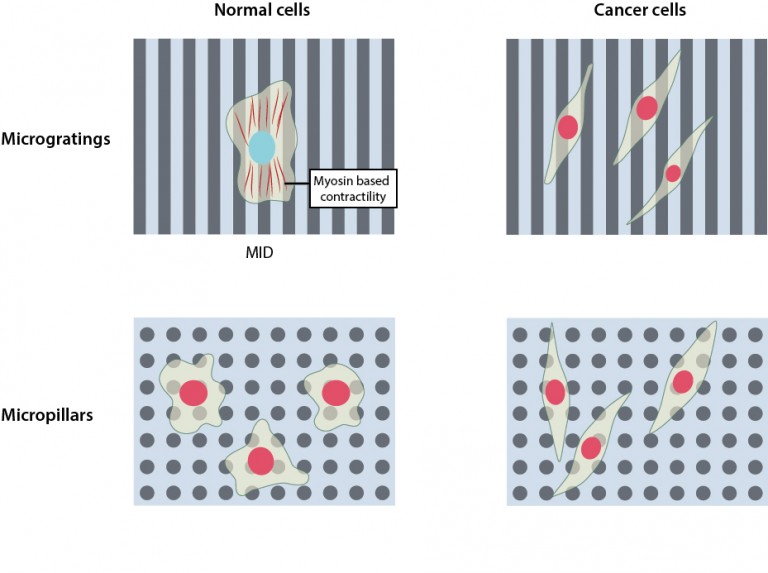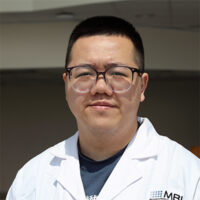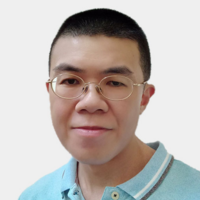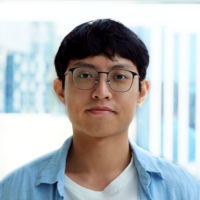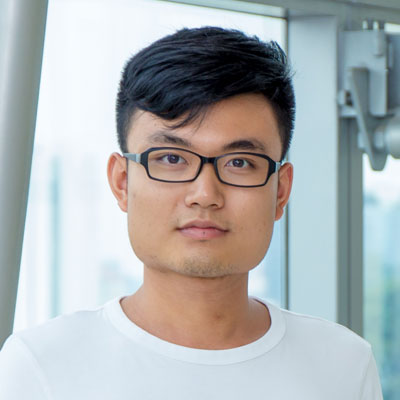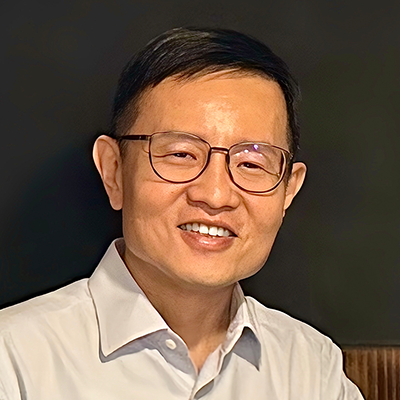
LIM Chwee Teck
NUSS Professor, Mechanobiology Institute, National University of Singapore
ctlim@nus.edu.sg
E3, #05-10, 9 Engineering Drive 1
Dept of Biomedical Engineering
National University of Singapore
Singapore 117581
Laboratory website
MechanoBioEngineering Laboratory
Research Program
Leader, Technology Innovation for Mechanobiology Group
Affiliations
NUSS Professor, National University of Singapore
Director, Institute for Health Innovation and Technology (iHealthtech)
The mechanics of cancer growth
How cancer cells spread in response to physical cues from their surroundings
Confined movements
How cells form tubes in confined spaces
Defects in Epithelial Tissue Organization
A question of life and death
Too Deep To Divide!
Molecular response to depth sensing differs in cancer cells
Cell Extrusion Mechanisms
Making sure to expel an unwanted cell
A Mechanical Stop Sign
MBI Scientists reveal the effects of ECM topography on the poliferation of normal and cancer cells
Lim Chwee Teck
Principal Investigator
Research Areas
Collective cell migration; Human disease mechanobiology; Microfluidic biomedical technologies, Soft wearable technologies
Research Interests
We aim to address important scientific and biomedical problems using interdisciplinary approaches, develop innovative solutions and translate them for biological and healthcare applications. Our focused areas include mechanobiology of human diseases, and the development of microfluidic technologies and flexible wearable devices for human disease diagnosis and precision therapy.
Another major research interest is collective cell migration which is central to the development and maintenance of multicellular organisms and requires orchestrated movement of cells in specific directions to specific locations and within geometrical constraints. Thus, understanding the mechanisms by which cells collective migrate may potentially lead to the development of therapeutic strategies for diseases such as cancer or for tissue repair. Here, we seek to understand how mechanical cues such as spatial organisation of ECM proteins or geometrical constraints can regulate and coordinate collective migration of cells as well as force transmission across the cell sheet.
Biography
Professor Lim is the NUS Society Chair Professor of Biomedical Engineering and Director of the Institute for Health Innovation and Technology at NUS. He is also the Founding Director of the Singapore Health Technologies Consortium.
His research interests include human disease mechanobiology and the development of microfluidic and wearable technologies for healthcare applications. He is a prolific researcher having co-authored over 500 journal publications and delivered more than 530 plenary/keynote/invited lectures. He is also a serial entrepreneur having started six companies to commercialize technologies developed in his lab.
Professor Lim is an Elected Fellow of the Royal Society, IUPESM, US National Academy of Inventors, AIMBE, IAMBE, ASEAN Academy of Engineering and Technology, Academy of Engineering, Singapore, Singapore National Academy of Science and the Institution of Engineers. He and his team have garnered over 100 research awards and honours including Nature Lifetime Achievement Award for Mentoring in Science, Asia’s Most Influential Scientist, Highly Cited Researcher, IES Prestigious Engineering Achievement Award, ASEAN Outstanding Engineering Achievement Award, Asian Scientists 100, Credit Suisse Technopreneur of the Year Award, Wall Street Journal Asian Innovation Award (Gold) and the President’s Technology Award among others.
Education
BEng in Mechanical Engineering (with First Class Honours), National University of Singapore
PhD University of Cambridge, UK
Selected Publications
- Phuong Le, A, et al, Adhesion-mediated heterogeneous actin organization governs apoptotic cell extrusion, Nature Communications, 12, 397, 2021.
- Doss, B L et al, Cell response to substrate rigidity is regulated by active and passive cytoskeletal stress, PNAS, 117, 23, 12817-12825 2020.
- Jain, S et al, The role of single cell mechanical behavior and polarity in driving collective cell migration, Nature Physics, 1-8, 2020.
- Sun, A X Y et al, Potassium Channel Dysfunction in Human Neuronal models of Angelman Syndrome, Science, 366, 6472, 1486-1492, 2019.
- Lim, S B et al, Addressing cellular heterogeneity in tumor and circulation for refined prognostication, PNAS, 116, 36, 17957-17962, 2019.
- Ding, X G et al, Defect Engineered Bioactive Transition Metal Dichalcogenides Quantum Dots, Nature Communications, 10, 1, 41, 2019.
- Xi, W, T B Saw, C T Lim, B Ladoux, Materials Approach to Active Tissue Mechanics, Nature Reviews Materials, 4, 23-44, 2019.
- Saw, T B, W Xi, B Ladoux, C T Lim, Biological tissues as active nematic liquid crystals, Advanced Materials, 118, 14, 6499-6515, 2018
- Chaudhuri, P K, B C Low, C T Lim, Mechanobiology of Tumor Growth, Chemical Reviews, 118, 14, 6499-6515, 2018
- Sun, S Y et al, Flagellum couples cell shape to motility in Trypanosoma brucei, PNAS, 201722618, 2018
- Khoo, B L et al, Expansion of patient-derived circulating tumor cells from liquid biopsies using a CTC microfluidic culture device, Nature Protocols, 13, 34-58, 2018
- Kenry et al, When stem cells meet graphene: Opportunities and challenges in regenerative medicine, Biomaterials, 155, 236-250, 2018
- Lim, S B et al, An extracellular matrix-related prognostic and predictive indicator for early-stage non-small cell lung cancer, Nature Communications, 8, 1734, 2017
- Saw, T B et al, Topological defects in epithelia govern cell death and extrusion, Nature, 544, 212-216, 2017. [PMID: 28406198]
- Warkiani, M E, et al, Ultra-fast, label-free isolation of circulating tumor cells from blood using spiral microfluidics, Nature Protocols, 14, 1, 128-37, 2016. [PMID: 26678083]
- Khoo, B L et al, Liquid biopsy and therapeutic response: Circulating tumor cell cultures for evaluation of anticancer treatment. Science Advances, 2, 7, e1600274, 2016. [PMID: 27453941]
- Gupta, M et al, Adaptive rheology and ordering of cell cytoskeleton govern matrix rigidity sensing, Nature Communications, 6, 7525, 2015. [PMID: 26109233]
- Vedula, S R K et al, Mechanics of epithelial closure over non-adherent environments, Nature Communications, 6, 6111, 2015. [PMID: 25608921]
- Lee, W C et al, Multivariate biophysical markers predictive of mesenchymal stromal cell multi potency, PNAS, 111(42):E4409-18, 2014. [PMID: 25298531]
- Yao, M et al, Force-dependent conformational switch of a-catenin controls vinculin binding, Nature Communications, 5, 4525, 2014. [PMID: 25077739]
- Vedula, S R K et al, Epithelial bridges maintain tissue integrity during collective cell migration, Nature Materials, 13, 87-96, 2014. [PMID: 24292420]
- Thiery, J P, C T Lim, Tumor dissemination: An EMT affair, Cancer Cell, 23, 3, 272-273, 2013. [PMID: 23518345]
- Vedula, S R K et al, Emerging modes of collective cell migration induced by geometrical constraints, PNAS, 109, 32, 12974-12979, 2012. [PMID: 22814373]
- Sheng, B, et al, Artificial intelligence for diabetes care: current and future prospects, The Lancet Diabetes & Endocrinology, 12, 8, 569, 2024.
- Wang, C R, et al, Wound management materials and technologies from bench to bedside and beyond, Nature Reviews Materials, 9, 550, 2024.
- Chen, S W, et al, Wearable flexible microfluidic sensing technologies, Nature Reviews Bioengineering, 2023.
- Chen, S W, et al , Ultrahigh Strain-insensitive Integrated Hybrid Electronics Using Highly Stretchable Bilayer Liquid Metal based Conductor, Advanced Materials, 35, 5, e2208569, 2023.
- Glentis, A, et al, The Emergence of Spontaneous Coordinated Epithelial Rotation on Cylindrical Curved Surfaces, Science Advances, 8, 37, eabn5406, 2022.
- Saw, T B, et al, Transepithelial potential difference governs epithelial fate by electromechanics, Nature Physics, 18, 1122–1128, 2022.
- Hong, J H, et al, Point-of-care diagnostic tests for active tuberculosis, Science Translational Medicine, 639, eabj4124, 2022.
- Chakraborty S, et al, Agrin-Matrix Metalloproteinase-12 axis confers a mechanically competent microenvironment in skin wound healing, Nature Communications, 12, 6349, 2021.
- Gao, Y J, et al, A wearable multifunctional immunosensor for the monitoring of chronic wounds, Science Advances, 7, 21, eabg9614, 2021.
- Gaston, C, et al, EpCAM promotes endosomal modulation of the cortical RhoA zone for epithelial organization, Nature Communications, 12 1, 1-22, 2021.
- Phuong Le, et al, Adhesion-mediated heterogeneous actin organization governs apoptotic cell extrusion, Nature Communications, 12,397, 2021.
Recent Publications
- Zhang X, Bai J, Fan S, Liang L, Song X, Nai MH, Zhang R, Chen M, Wang J, and Lim CT. Dissecting Exosomal-Tumoral-Vascular Interactions of Single Tumor Cells and Clusters Using a Tumoral-Transendothelial Migration Chip. ACS Nano 2025;. [PMID: 40556461]
- Wang J, Qin Y, Wu Q, Zeng D, Gao X, Wang Q, Li Z, Ni Y, Li H, Zhang P, Guo J, Ma W, Maitusun M, Jin X, Chen M, Zhu L, Lu Q, Chen Q, Wu Y, Lin C, Han R, Cheng D, Ni J, Wang X, Yao F, Zhuang J, Xia J, Liu D, Lu Y, Kang P, Yu S, Chen A, Zhang Y, Li Q, Ge W, Long X, Jiang Z, Guan Z, Jin Z, Jin P, Li T, Shu J, Yang J, Wang J, Jiang N, Qian J, Jung Y, Zhang H, Yang Q, Ma L, Wu X, Huang X, Si D, Ren J, Qiao H, Guo Y, Huang Z, Wang W, Deng W, Bi L, Zhao D, Li Y, Lau RWH, Tham Y, Ma X, Ma J, Shen D, Zhang S, Guan H, Zou W, Guo M, Guan X, Yang X, Xu A, Wu J, Panagiotou G, Tse MA, Kim J, Wu E, Thalmann D, Thalmann NM, Fregni F, Wong TY, Jia W, Zeng R, Lim CT, Sheng B, and Li H. An adaptive AI-based virtual reality sports system for adolescents with excess body weight: a randomized controlled trial. Nat Med 2025;. [PMID: 40551019]
- Miotti P, Scarpone M, Lim CT, and Pivkin IV. A Computationally Efficient Viscoelastic Eukaryotic Cell Model. Ann Biomed Eng 2025;. [PMID: 40537593]
- Wang C, Shirzaei Sani E, Shih C, Lim CT, Wang J, Armstrong DG, and Gao W. Wound management materials and technologies from bench to bedside and beyond. Nat Rev Mater 2024; 9(8):550-566. [PMID: 40535534]
- Li X, Wan S, Pronay TS, Yang X, Gao B, and Lim CT. Toward next-generation smart medical care wearables: where microfluidics meet microneedles. Nanoscale Horiz 2025;. [PMID: 40521959]
- Mitra A, Cutiongco MFA, Burla R, Zeng Y, Na Q, Kong M, Vinod B, Nai MH, Hübner B, Ludwig A, Lim CT, Shivashankar GV, Saggio I, and Zhao W. Acute chromatin decompaction stiffens the nucleus as revealed by nanopillar-induced nuclear deformation in cells. Proc Natl Acad Sci U S A 2025; 122(19):e2416659122. [PMID: 40343993]
- Lee J, Menon NV, Truong HD, and Lim CT. Dynamics of Spatial Organization of Bacterial Communities in a Tunable Flow Gut Microbiome-on-a-Chip. Small 2025;:e2410258. [PMID: 40201941]
- Chen S, Fan S, Qiao Z, Wu Z, Lin B, Li Z, Riegler MA, Wong MYH, Opheim A, Korostynska O, Nielsen KM, Glott T, Martinsen ACT, Telle-Hansen VH, and Lim CT. Transforming Healthcare: Intelligent Wearable Sensors Empowered by Smart Materials and Artificial Intelligence. Adv Mater 2025; 37(21):e2500412. [PMID: 40167502]
- Venugopal Menon N, Lee J, Tang T, and Lim CT. Microfluidics for morpholomics and spatial omics applications. Lab Chip 2025;. [PMID: 39865877]
- Wang Y, Wang Y, Zhu Y, Yu P, Zhou F, Zhang A, Gu Y, Jin R, Li J, Zheng F, Yu A, Ye D, Xu Y, Liu Y, Saw TB, Hu G, Lim CT, and Yu F. Angiomotin cleavage promotes leader formation and collective cell migration. Dev Cell 2024;. [PMID: 39389053]
MBI Lab Members
Wang Shida
PhD Student, Class of August 2024, Lim Group
Ng Wenfa
Research Assistant, Lim Group
Liang Lanfeng
Research Fellow, Class of August 2019, Lim Group
Jiang Kuan
PhD Student, Class of August 2016, CT Lim Group

